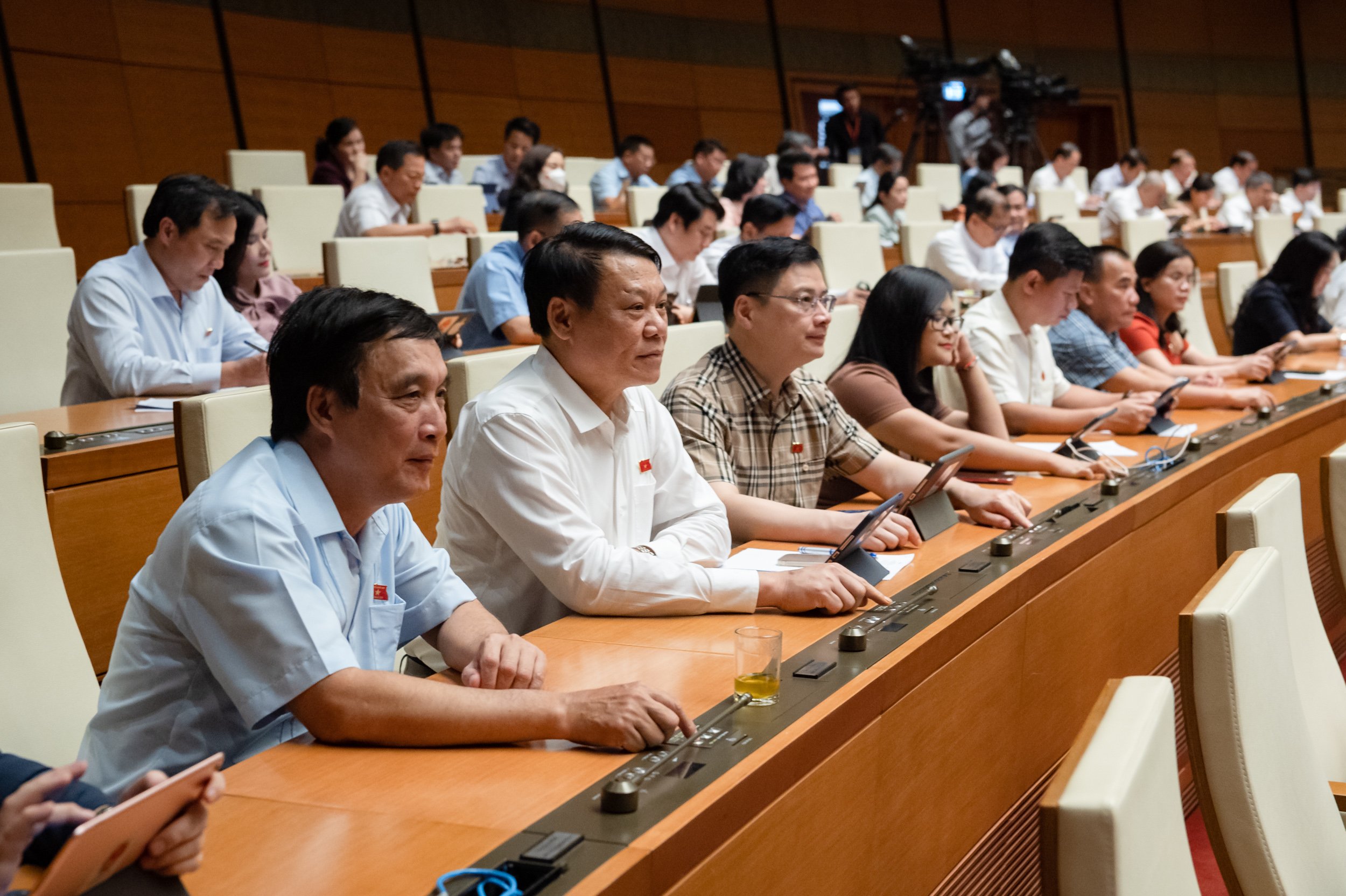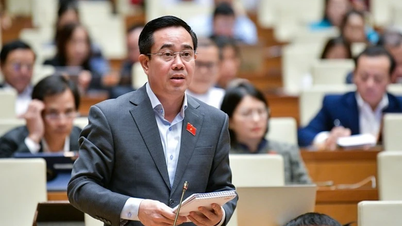On the afternoon of June 19, the National Assembly passed the Law on Prices (amended) with 459 delegates in favor (reaching a rate of 92.91%). The amended Law on Prices, with 8 chapters and 75 articles, will take effect from July 1, 2024.
Previously, the National Assembly Standing Committee reported explaining why the price frame has not been removed and this item has followed the market mechanism.
Chairman of the National Assembly's Finance and Budget Committee Le Quang Manh said that regarding the price of domestic air passenger transport services (air tickets), the majority of opinions agreed with the Government 's proposal: The State sets a maximum price (ceiling price) to ensure people's interests; some opinions suggested removing the regulation on price frames.
The National Assembly Standing Committee believes that in the current context, when the aviation market is still limited in competitiveness; promoting the synchronous and modern development of transport types still requires efforts, especially when the high-speed North-South railway has not been deployed and operated; when the impact and consequences of removing the price ceiling regulations have not been assessed.
This is to ensure the initiative of airlines on the one hand, but on the other hand, to protect the interests of the people, the State still needs to maintain the ceiling price regulation for domestic air passenger transport services as a tool for State price management to ensure the State's responsibility in stabilizing the market, maintaining healthy competition, and promoting socio -economic development.

National Assembly delegates voted to pass the Law on Prices (amended).
Based on the actual context, carefully studying different opinions, and based on the principle of majority decision, at the present time, the National Assembly Standing Committee requests the National Assembly to allow the regulation of price ceilings for domestic air passenger transport services.
Regarding the proposal to regulate the price framework for textbooks (including the floor price), the National Assembly Standing Committee said that, according to the current Price Law, textbooks are not a commodity whose price is determined by the State.
However, from the 14th National Assembly until now, many delegates have suggested that the State needs to control the price of this item to protect people's interests and avoid price increases from publishers.
In response to delegates' opinions, the National Assembly Standing Committee directed to set a ceiling price and not a floor price for this item, because textbooks are essential goods, with a very large consumer base and a very wide range of influence, and the price of this item directly affects the majority of people, including low-income earners.
Currently, in the method of calculating textbook prices, publishers add the cost of publishing books, the discount rate is very high (in the 2022-2023 school year, the discount rate for textbooks is 28.5% of the cover price, workbooks is 35% of the cover price), leading to pushing up book prices compared to the income of many people. Therefore, it is necessary to have a control tool to ensure that it does not negatively impact people.
Not setting a floor price is reasonable because this is a special product, with mandatory consumption, including vulnerable groups. If a floor price is set, book publishers cannot sell to people at a price lower than the floor price, which directly affects the interests of people, especially those with low incomes.
Currently, the Government has not proposed a floor price regulation, so the impact of a floor price regulation on textbooks has not been assessed. Therefore, according to the Law on Promulgation of Legal Documents, there is not enough basis to supplement the regulation on floor prices.
Furthermore, textbooks are a diverse product in terms of types and consumed nationwide, so calculating a suitable floor price for each type of book and suitable for all different regions is difficult. In practice, depending on the socio-economic situation at each time, the Government will decide on a suitable ceiling price.
Regarding the opinion that unfair competition will result if there is no floor price regulation, the National Assembly Standing Committee said that the Competition Law has clearly stipulated prohibited competitive practices. The competent authorities need to strengthen control. Violations will be handled according to the provisions of the law.
Thus, to stabilize the market for textbook prices, create healthy competition, and protect the interests of consumers, the National Assembly Standing Committee requests the National Assembly to allow only regulating ceiling prices, not floor prices, for textbooks in the Draft Law.
The National Assembly also agreed not to add "milk for the elderly" and pork to the list of price-stabilized goods and services .
Source



![[Infographic] Notable numbers after 3 months of "reorganizing the country"](https://vphoto.vietnam.vn/thumb/1200x675/vietnam/resource/IMAGE/2025/10/4/ce8bb72c722348e09e942d04f0dd9729)
![[Photo] Students of Binh Minh Primary School enjoy the full moon festival, receiving the joys of childhood](https://vphoto.vietnam.vn/thumb/1200x675/vietnam/resource/IMAGE/2025/10/3/8cf8abef22fe4471be400a818912cb85)


![[Photo] Prime Minister Pham Minh Chinh chairs meeting to deploy overcoming consequences of storm No. 10](https://vphoto.vietnam.vn/thumb/1200x675/vietnam/resource/IMAGE/2025/10/3/544f420dcc844463898fcbef46247d16)






























































![[Infographic] Notable numbers after 3 months of "reorganizing the country"](https://vphoto.vietnam.vn/thumb/402x226/vietnam/resource/IMAGE/2025/10/4/ce8bb72c722348e09e942d04f0dd9729)


































Comment (0)